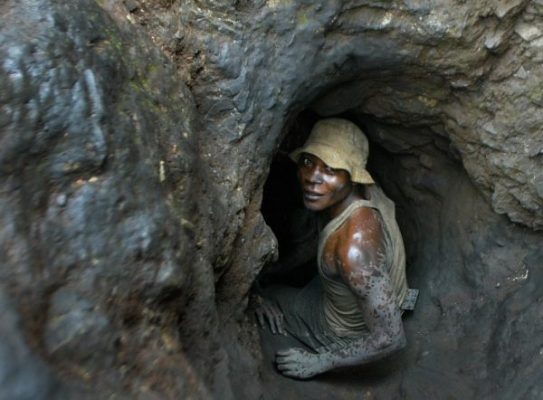Zimbabweans love generalising and stereotyping. I guess, in a way, this makes things easy to understand.
In any case, who needs to grapple with deeper and nuanced analysis when they have to contend with a myriad of serious economic issues facing our country — the late rains, school fees hikes, soaring prices and all?
So criminal elements that wield machetes have been branded “machete gangs”, all because there is a large concentration of artisanal miners in Shurugwi (Midlands province).
For sure, at times some of them have been caught on the wrong side of the law.
It also happens that the media has somehow recently “discovered” criminal activity in our mining sector.
Now the story is that artisanal miners are machete-wielding thugs, or worse still, that the whole country is literally in a state of emergency.
However, the basic questions remain unasked.
Are these acts new? Have machete activities just suddenly reached a tipping point? What really fuels this conflict?
Unfortunately, because we have not taken time to understand the situation, we have seemingly adopted a firefighting approach that risks turning a fairly containable situation into a long-term problem for Zimbabwe.
Artisanal miners
Just the other day, police were rounding up artisanal miners simply because they did not possess the necessary licences to mine.
By implication, the lack of such documents connotes that they are “machete gangs” or machete-wielding thugs.
Sadly, this approach is likely to reverse the gains of formalising artisanal mining and leave a number of well-meaning and hardworking young men and women jobless.
Years back the same approach resulted in a marked decline in gold deliveries.
The average artisanal miner is not rich, but is a young person who has found a creative way to make a living.
Out of the estimated 1,5 million miners currently involved in gold mining, over 80 percent are simply content with eking out a decent living.
Owing to the rudimentary nature of their work, most of them are largely itinerant. How they move and where they move is generally influenced by rumour and half-facts.
Artisanal miners often move in groups because their mining activities necessarily involve teamwork.
Conflict between mobile groups searching for rich ground is sometimes unavoidable.
This is not a new phenomenon.
It has been going on for some time.
The only difference could be that the numbers have increased and conflicts are now being routinely spotlighted by the media.
Tanzania faced the same problem but was quick to realise that the solution did not lie in criminalising the artisanal miner.
They came up with a programme that both empowered miners and compelled them to care for the environment.
The framework also obliges them to produce exclusively for the state and governs their mobility.
There is also a specific legal provision that sets aside a portion of claims for small-scale miners, and the cost of acquiring such claims is heavily subsidised.
The country, which used to produce comparatively less gold than Zimbabwe, now mines more than 50 tonnes per year — close to double our deliveries to Fidelity Printers and Refiners (FPR) last year.
Importance
The importance of small-scale miners in our sector cannot be overemphasised.
After realising that co-opting artisanal miners would help stem gold leakages, Government began encouraging unregistered miners to sell gold directly to FPR a couple of years ago.
However, the miners had to present their identity documents.
By so doing, FPR began to accurately capture trends in this critical sub-sector and growing an auditable database in the process.
Through engagements with the Ministry of Mines and Mining Development and Zimbabwe Republic Police, artisanal miners were encouraged to formalise as a way of attracting loans and equipment critical to their business.
In part, this accounts for the progressive growth in deliveries over the years.
But the programme to formalise the sub-sector could have been better structured.
It turned out to be a sectoral ad hoc activity that did not have clearly defined outcomes.
Today, the demographic data on artisanal miners remains a mere conjecture.
As a result, criminal elements and opportunists have taken advantage of this shortcoming to loot and disrupt an industry that presently supports the majority of rural youths.
The danger for Zimbabwe of the current inquisition into artisanal mining activity is to erroneously label honest, hardworking people illegal.
It must be acknowledged that one of the positives of the land reform programme was to open up previously hidden mining claims to the indigenous population.
Now that they are getting the hang of it, albeit in less formal circumstances, Government must not rush to pull the trigger.
What we need as a country is an aggressive and robust formalisation initiative similar to a census drive.
This will not only assist in identifying culprits, but importantly, channel this fairly rudimentary mining pursuit into proper business.
It may turn out to be the biggest empowerment initiative.
We must neither be distracted nor deluded by criminals into neglecting and condemning enterprising youth.
Munyaradzi Hwengwere is the chairperson of Minex, which is an online and physical marketing platform for miners and related value chain. Feedback: [email protected]
The Sunday Mail




